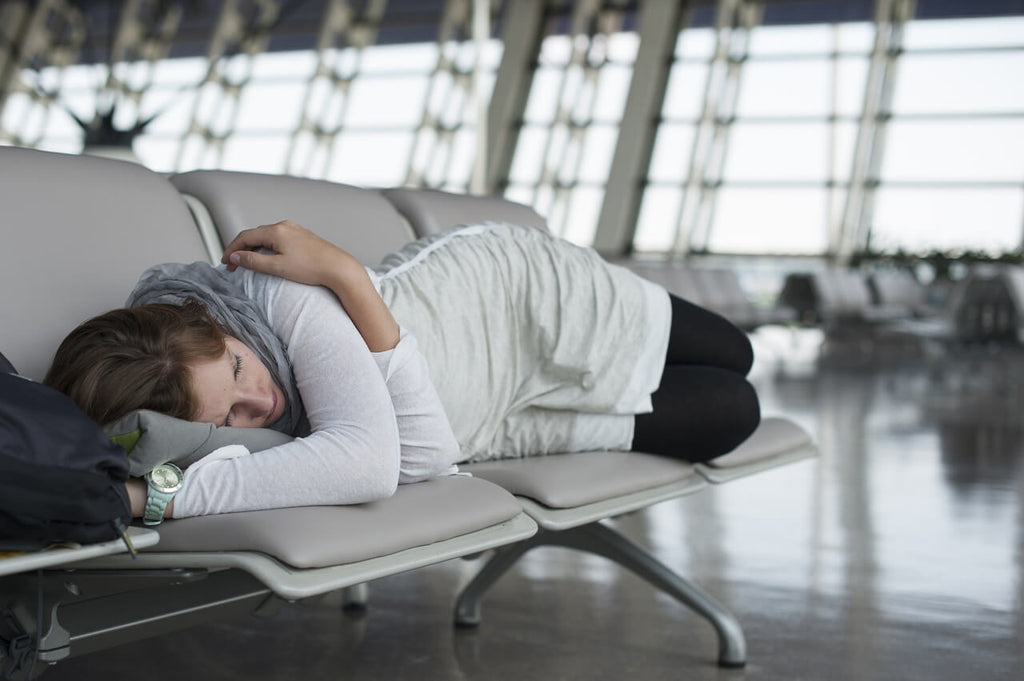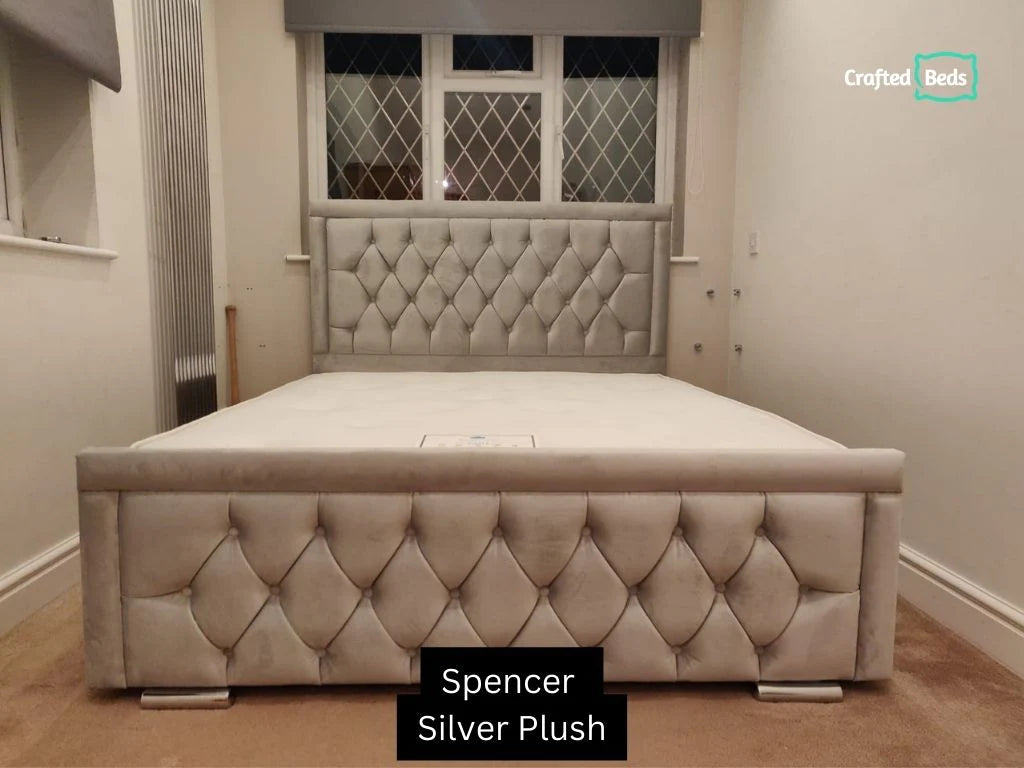Advanced sleep-wake-phase disorder is a disorder of the circadian rhythm that causes a person to fall asleep early in the evening, and awake later in the morning as opposed to most people.
The typical advance is at least two hours before the recommended or desired time for sleep. For instance, a person who wants to sleep from 10 pm to 6 am could fall asleep at 8 pm and awake at 4 am.
Patients suffering from this disorder typically suffer from excessive sleepiness during the early evening and they are prone to falling asleep earlier due to this.
They might complain that they awake earlier in the day but can't get back to sleep and experience insomnia.
To be diagnosed, the signs should exist for a minimum of three months. It is important to note that the first signs of awakening occur regardless of the beginning of sleep.
Other reasons for the early awakenings that are not related to depression, like sleep apnea, must be eliminated. Depression generally does not cause sleepiness at night however, untreated sleep apnea could cause sleepiness.
ASPD Vs. Delayed Sleep Phase Disorder
Advanced sleep phase disorder (ASPD) and delayed sleep phase disorder (DSPD) are both circadian rhythm sleep-wake disorders but their symptoms fall at opposite ends in the continuum.
While someone with ASPD will have an internal body clock which is running later, a person suffering from DSPD has an internal circadian rhythm that is tardier.
Someone who has ASPD might struggle to stay awake at night while someone with DSPD may stay up late, but may have difficulties being alert in the morning.
ASPD, as well as DSPD, are also distinct in the sense of who will be affected by the conditions. Older people are more likely to be affected by ASPD and younger individuals are more likely to suffer from DSPD.
ASPD is also rarer than DSPD However, it may be because it is not being recognized, as older schedules generally work better with the expectations of society.
Patients with either disorder may have issues because their sleeping patterns are unbalanced with the rest of the population and can lead to issues at work, at school, or in social settings.
How Common Is ASPD?
ASPD is more prevalent in older people. It affects around 1 percent of people between the ages of 40 and 65 years of age.
What Are The Signs Of Advanced Sleep-Wake-Phase Disorder?
Anyone with ASP might:
- Sleep through the afternoon or in the early evening, and then get up early, while everyone else is sleeping.
- You'll feel very sleepy in the late afternoon, and extremely awake in the early hours of the morning.
- Get up and go to sleep before they'd like to. It is also crucial to determine if other factors are making you sleepy. It could be because of one of these:
- Another sleep disorder
- Substance abuse
- A medical issue
- A mental health disorder
- Medication use
What Are The Risk Factors For Advanced Sleep-Wake-Path Disorder?
Advanced sleep-wake-wake phase disorder isn't widespread. It is thought to affect only one percent of middle-aged adults. It is more prevalent in seniors and older people.
Both genders suffer a similar amount. Genetic linkage is evident in certain families and could be the reason for ASP in patients younger than.
It could be triggered, increased or sustained by environmental influences. It may also be the result of stress from outside sources such as work or social pressures.
What Are The Effects Of Aspd?
Sleep phase disorders that are severe can be a challenge to deal with. It can impact all aspects of one's life beyond the time one goes to bed and is awake.
Sleepiness During Evening Events
Patients who suffer from ASPD may find it difficult to stay awake during social events which are scheduled for late evening or in the afternoon.
They might fall asleep at an evening social or at a family gathering that occurs late at night, which may affect their relationships with others.
Chronic Sleep Lack
People suffering from ASPD might feel pressured to attend social gatherings or take part in other social activities which makes them stay up after their normal bedtime.
If they do manage to extend their bedtime they may wake up at a very early hour in the morning which causes them to be unable to get sleep.
As time passes, this may result in sleep deprivation that can manifest as symptoms such as sleepiness in the morning, a lack of focus concentration or slow reactions time seven throughout the day.
Emotional Stress
People suffering from advanced sleep phase disorder might struggle to remain awake during social, work or family occasions which take place late at night, which could create stress or damage their relationships.
As they may also experience difficulty returning to sleep after awakening at a brisk pace, they might be worried about having depression or insomnia.
Although people suffering from depression can wake up earlier, they generally do not experience the tiredness that people who suffer from ASPD suffer at night.
Use Of Stimulants In Excess, Alcohol, Or Drugs
To aid in staying awake, people suffering from advanced sleep disorders might utilise coffee or any other stimulants during the evening or in the early hours of the day.
When they wake up, they can utilise sedatives, alcohol and sleeping tablets to aid in sleeping in. However, these drugs will just disturb their sleep, increasing sleep loss and having negative side effects.

Causes And Diagnosis
The advanced sleep-wake-phase disorder is seen more frequently in older people. This could be due to the natural decline in reaction to light as a result of ageing, particularly in those suffering from lens issues like cataracts.
The advanced sleep stage also appears to be a family trait. There may be several genetic variations that are present in the casein kinase gene (CKI-delta and CKI-epsilon) and the hPer1 and the hPer2.
Additionally, there could be a higher rate of incidence among children with developmental disorders such as autism.
The exact incidence of the condition is unclear However, it is thought to affect less than one per cent of the population.
Advanced sleep-wake-phase disorder can be diagnosed with an in-depth medical history. If additional information is needed, sleep logs and actigraphy can be utilised.
The tests are typically conducted throughout 1 to two weeks to determine the general patterns of sleep and wake.
In some instances, a sleep examination might be necessary to determine the cause of symptoms, for instance, sleep apnea.
Treatment
The more serious sleep-wake disorder can be successfully treated through the aid of photography therapy. Exposure to sunlight in the evening can aid in reducing the duration of sleep.
If night light is not easy to find the lightbox can be utilised. Other elements that are part of cognitive-behavioural treatment in the treatment of sleepiness (CBTI) may be utilised.
In some instances it is recommended to take a small dose of Melatonin early in the day . However, adverse effects like nighttime sleepiness could be an issue.
If symptoms continue to persist, it might be necessary to safeguard the desired sleep time to prevent the negative consequences of sleep lack.
If you're concerned about the reason for your sleep problems, consult with a specialist in sleep regarding the options available for a proper assessment and therapy.
What Are Other Common Forms Of Sleep Disorders Affecting Circadian Rhythm?
Delayed Sleep Phase Condition
If you are suffering from this disorder of sleep in which you sleep and awake more than two hours longer than what is thought to be a normal cycle of sleep and wake.
As an example, it is a "night sleeper" who might not be able to go to sleep till two a.m. and later but stay up until 3 p.m.
What are the most frequent kinds of sleep disorders affecting the circadian rhythm other than ASPD?
Other characteristics associated with delayed sleep phases disorder include:
- It's often the case that you're most productive, alert and creative at night.
- If you are forced to wake up early, you will be tired throughout the day.
- People often think you're unmotivated, lazy, or a poor performer who always arrives tardy to meet your morning obligations.
- It is most often found in young adults.
- May run in families.
Jet Lag
If you suffer from this sleep condition it means that your body's internal clock is affected by the long flight time to a location that is more than two times different from your home.
The sleep-wake cycles are disrupted, making it challenging to adjust and function within your new time zone.
Travelling eastward is more challenging than westward travel, as it is simpler to prolong sleep than advance sleep.
Common signs of jet lag include:
- A change in appetite.
- Changes in the gastrointestinal (stomach and the bowel) function.
- General tiredness.
- A general feeling of unease or discomfort and mood swings.

The Shift Work Problem
You could be suffering from an insomnia disorder when you often rotate shifts or work during the evening.
The work schedules you choose to follow interfere with your body's circadian rhythm, which makes it difficult to adapt to the shift.
A shift-related disorder can be identified by a continuous or repeated period of sleep disruption which can cause insomnia or excessive sleepiness.
Other typical features of shift work disorders include:
- Ongoing tiredness.
- The feeling of general unease or discomfort and mood disorder.
- Gastrointestinal problems.
- Reduced sex drive.
Other health risks include an increased chance of drinking alcohol and other drugs as well as weight growth, high blood pressure and heart disease, as well as endometrial and breast cancer.
This type of sleep disorder is frequently seen in people who work at night or in the early hours of the morning.
Sleep-Wake Cycle Irregular
Sleep disturbance is characterised by an undefined cycle of sleep and wake. You could take several hours of sleep during the daytime. It is characterised by ongoing (chronic) insomnia or excessive sleepiness, or both.
This condition is typically observed in people suffering from neurological diseases like dementia and nursing homes, in kids with intellectual disabilities, and in people who have suffered traumatic injuries to the brain.
A sleep-wake syndrome that isn't 24 hours: If you have this sleep disorder, you maintain the same amount of sleep and wake time, however, you're "internal clock" is greater than the 24-hour mark.
If this is the case the sleep-wake cycle alters every single day, with your time being delayed between one and two hours per day. The most common occurrence of this disorder is in blind individuals.
FAQs
Now that you know all about advanced sleep-wake phase disorder, let’s take a look at a few frequently asked questions.
What Are The Sleep-Wake Issues That Exist?
There are a variety of types of sleep-wake disorders, among which insomnia is among the most prevalent.
Other sleep-wake conditions include obstructive sleep apnea and parasomnias, narcolepsy as well as restless leg syndrome. Sleep problems are associated with emotional and physical issues.
What Time Does Someone With A Sleep-Wake Disorder Do They Fall Asleep?
The Advanced Sleep Phase Disorder suffers from this disorder of sleep. It is possible to fall asleep late at night (6 p.m. until nine p.m.) and get up at the beginning of the morning (2 a.m. until five a.m.).
Wrap Up!
The precise cause of ASPD isn't fully known. But, it appears to have a genetic connection that sufferers have an 80% chance of passing it on to their children. If a person is suffering from the disorder, their need for medical attention depends on the individual's situation.
The condition itself isn't necessarily unhealthy or risky. Certain sufferers can get the right amount of sleep if their routines at work and home permit them to fall asleep earlier and get up early.
If you decide to go for treatment, you could require polysomnography, a sleep test that tracks heart rate, breathing rates and brain activity as well as leg and eye movements.
This can help doctors observe your sleep and wake cycles, and could be used to determine if there is another sleeping disorder that might be causing the symptoms you are experiencing.
Furthermore, if you’re looking to improve your sleep then don’t forget to visit Crafted Beds. We offer premium quality mattresses and bedding accessories to help improve your sleep and overall health. So what are you waiting for? Go and grab your perfect mattress right now!





